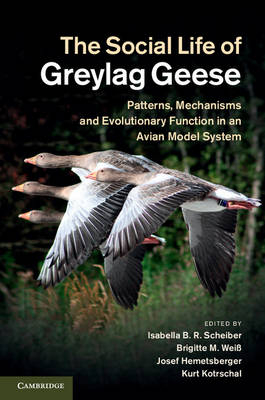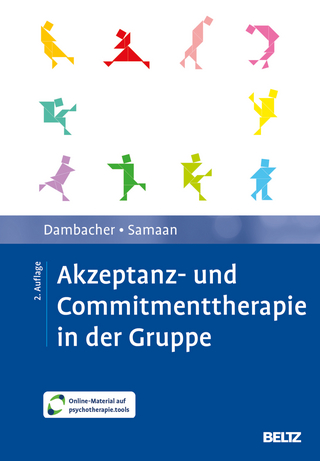
The Social Life of Greylag Geese
Cambridge University Press (Verlag)
978-0-521-82270-1 (ISBN)
The flock of greylag geese established by Konrad Lorenz in Austria in 1973 has become an influential model animal system and one of the few worldwide with complete life-history data spanning several decades. Based on the unique records of nearly 1000 free-living greylag geese, this is a synthesis of more than twenty years of behavioural research. It provides a comprehensive overview of a complex bird society, placing it in an evolutionary framework and drawing on a range of approaches, including behavioural (personality, aggression, pair bonding and clan formation), physiological, cognitive and genetic. With contributions from leading researchers, the chapters provide valuable insight into historic and recent research on the social behaviour of geese. All aspects of goose and bird sociality are discussed in the context of parallels with mammalian social organisation, making this a fascinating resource for anyone interested in integrative approaches to vertebrate social systems.
Isabella B. R. Scheiber is a visiting researcher at the Behavioural Ecology and Self-Organization Group of Rijksuniversiteit Groningen, The Netherlands, and an Associate Scientist at Konrad Lorenz Forschungsstelle, Austria. Brigitte M. Weiß is a visiting researcher at the Institute of Evolution and Ecology, Eberhard-Karls-Universität Tübingen, Germany and an associate scientist at Konrad Lorenz Forschungsstelle, Austria. Josef Hemetsberger is a scientist at the Department of Behavioural Biology, Universität Wien, Austria, and Konrad Lorenz Forschungsstelle, Austria. Kurt Kotrschal is Professor of Zoology at the Department of Behavioural Biology, Universität Wien, Austria, and Director of Konrad Lorenz Forschungsstelle, Austria.
List of contributors; Preface Kurt Kotrschal; Acknowledgements; Part I. Research Background: 1. Greylag geese: from general principles to the Konrad Lorenz flock Josef Hemetsberger, Brigitte M. Weiß and Isabella B. R. Scheiber; 2. Goose research then and now Katharina Hirschenhauser, Heidi Buhrow, Helga Fischer and Kurt Kotrschal; Part II. From Individual to Clan: 3. Individuals matter: personality Simona Kralj-Fišer, Jonathan Niall Daisley and Kurt Kotrschal; 4. Maintenance of the monogamous pair bond Iulia T. Nedelcu and Katharina Hirschenhauser; 5. Alternative social and reproductive strategies Brigitte M. Weiß; 6. Beyond the pair bond: extended family bonds and female-centred clan formation Isabella B. R. Scheiber and Brigitte M. Weiß; Part III. Costs and Benefits of Social Life: 7. Causes and consequences of aggressive behaviour and dominance rank Brigitte M. Weiß; 8. The costs of sociality measured through heart rate modulation Claudia A. F. Wascher and Kurt Kotrschal; 9. 'Tend and befriend': the importance of social allies in coping with social stress Isabella B. R. Scheiber; 10. How to tell friend from foe: cognition in a complex society Brigitte M. Weiß, Christian Schloegl and Isabella B. R. Scheiber; Part IV. Lessons for Vertebrate Social Life: 11. The greylag goose as a model for vertebrate social complexity Isabella B. R. Scheiber, Kurt Kotrschal and Brigitte M. Weiß; Index.
| Erscheint lt. Verlag | 29.8.2013 |
|---|---|
| Zusatzinfo | 3 Tables, black and white; 8 Plates, color; 39 Halftones, unspecified; 39 Halftones, black and white; 15 Line drawings, black and white |
| Verlagsort | Cambridge |
| Sprache | englisch |
| Maße | 157 x 234 mm |
| Gewicht | 550 g |
| Themenwelt | Geisteswissenschaften ► Psychologie ► Verhaltenstherapie |
| Naturwissenschaften ► Biologie ► Zoologie | |
| ISBN-10 | 0-521-82270-X / 052182270X |
| ISBN-13 | 978-0-521-82270-1 / 9780521822701 |
| Zustand | Neuware |
| Informationen gemäß Produktsicherheitsverordnung (GPSR) | |
| Haben Sie eine Frage zum Produkt? |
aus dem Bereich


